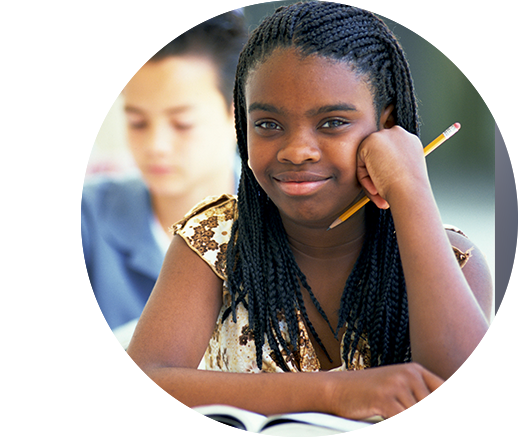Implementing Restorative Practices in Schools: Healing and Preventing Inequity Through Inclusive Policies

Each time a student is suspended, the chance they will graduate from high school decreases by 20%. Even non-offending students are impacted academically by exclusionary practices, and such practices are disproportionately used with marginalized students.
Restorative practices effectively reduce suspensions, expulsions, and disciplinary referrals by focusing on “righting a wrong committed and repairing harm done.”
– Ted Watchtel, founder of the International Institute of Restorative Practices
In a joint report on Restorative Practices by the National Education Association (NEA) and Schott Foundation, leadership and relational skills were recognized as a foundational restorative practice, as it guides students and educators in developing the skills needed to successfully address, mediate, and resolve conflict.
According to the joint report, foundational social-emotional learning skills include:
According to the NEA joint report, schools can directly influence restorative practices within the spheres of the classroom, the campus, and the community. Within those spheres, educators promote and implement actions aligned with the “Four P’s”: Person, Place, Practice, and Plan. The paradigms and practices developed through Leader in Me help schools implement the Four P’s across their Spheres of influence.
Leader in Me teachers model and directly teach interpersonal skills and intentionally work to build trusting relationships with their students. Students learn and apply the habits of interpersonal effectiveness through practices like:
The trust developed in LiM classrooms are an essential part of implementing restorative practices school-wide. Teachers and students work toward shared expectations of behavior and sustain a positive learning environment by practicing and modeling prosocial behaviors.
LiM educators know a student’s behavior at school is largely a function of how well their needs are met (both within the school and at home). Instead of punishing and isolating a student that acts out, LiM educations work within a growth mindset to help the child see their potential.
LiM classrooms utilize leadership practices to build a feeling of community, establish a common vision, and build trust through regular events like class meetings and shared academic goals.
Leader in Me maintains a foundational belief that each of us have special gifts and talents. LiM educators see students and other staff through this lens, which has a positive impact on relationships and overall school culture.
In LiM schools, the integration and application of social-emotional learning goes beyond behavior to what is seen, felt and heard. LiM schools utilize leadership practices to build engagement, establish a common vision, and instill worth and potential to the whole school community.
Leader in Me schools use key leadership practicies to build a feeling of community, establish a common vision, and build trust and unity through regular routines and activities. In addition, Leader in Me practices and systems are designed to give students voice and choice, empowering students to run key areas of the school activities.
LiM teachers follow a grade-level or team year-long plan that specifically outlines when all students will be directly taught the 7 Habits and leadership principles through LiM curriculum or teacher-developed equivalent lessons.
The habits of interpersonal effectiveness taught in LiM schools hlep open the minds of students and adults to develop awareness, respect, and openness to others, especially those who may be different, and in times of conflict. In this way, LiM schools move past tolerance to true appreciation of differences.
In LiM schools, being a leader means learning how to impact the world around you for the better. Schoowide events are transformed into opportunities to develop leadership skills. These events are planned and run by students and are designed for peers, families, and the community.
LiM schools invite families and the community to student-led events where students apply their social and emotional learning and model positive leadership behaviors.
Community events are designed to build relationships between students and members of the broader community. These events are often service oriented which allow students to connect their behaviors to positive impacts.